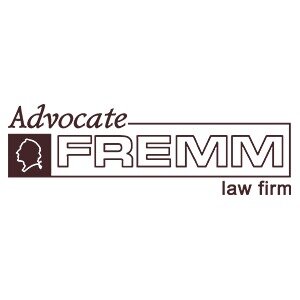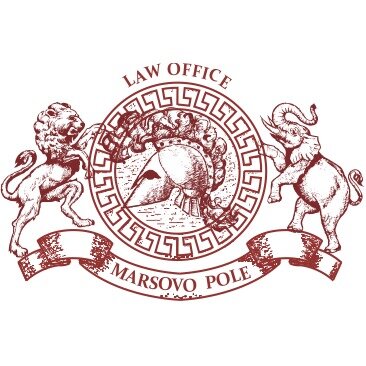Best Housing, Construction & Development Lawyers in St Petersburg
Share your needs with us, get contacted by law firms.
Free. Takes 2 min.
Free Guide to Hiring a Real Estate Lawyer
List of the best lawyers in St Petersburg, Russia
About Housing, Construction & Development Law in St Petersburg, Russia
St Petersburg, Russia, is a city with a rich architectural heritage and modern development projects that continue to expand its urban landscape. The field of Housing, Construction & Development in St Petersburg covers a wide array of issues, including residential housing, commercial developments, zoning regulations, and compliance with local and federal construction laws. The legal framework is designed to ensure safe, sustainable, and legally compliant building practices throughout the city. With a mix of historic preservation and new urban development, legal considerations play a crucial role in navigating construction projects in this vibrant city.
Why You May Need a Lawyer
Individuals or businesses may seek legal advice within Housing, Construction & Development for several reasons. Common situations include:
- Dispute Resolution: Conflicts between contractors, developers, and property owners may require legal intervention to resolve.
- Contract Negotiations: Drafting and reviewing construction contracts to ensure compliance and protect interests.
- Permitting and Compliance: Navigating the bureaucratic process of obtaining necessary permits and adhering to local regulations.
- Real Estate Transactions: Legal guidance for buying or selling properties, ensuring transactions adhere to legal standards.
- Property Development: Legal support for zoning requests or development planning that aligns with city ordinances.
- Historic Preservation: Legal advice on compliance with laws related to preserving the city's historical sites.
Local Laws Overview
The legal landscape for Housing, Construction & Development in St Petersburg includes several key aspects:
- Urban Planning Codes: Regulations governing how land can be used, including zoning laws and planning permissions.
- Construction Norms and Standards: National and local standards for building safety and environmental compliance.
- Historic Preservation Laws: Guidelines for maintaining the city's cultural heritage while allowing for modernization.
- Contract Law: Legal principles governing the formation and enforcement of property and construction-related agreements.
- Real Estate Regulations: Laws concerning property ownership, transactions, leasing, and property rights.
Frequently Asked Questions
What are the initial steps for starting a construction project in St Petersburg?
The first steps include understanding zoning laws, securing financing for the project, and obtaining the necessary permits from local authorities.
Do I need a permit for minor home renovations?
Permit requirements can vary depending on the nature of the renovation. It is advisable to consult with the local administrative bodies or a legal expert to determine if permits are necessary.
How can I resolve a dispute with my contractor?
Disputes may be resolved through negotiation, mediation, or legal action depending on the complexity and severity of the conflict. A lawyer can help assess the best course of action.
Can foreign investors purchase real estate in St Petersburg?
Yes, foreign nationals can purchase real estate in St Petersburg, though it involves certain procedures distinct from those for Russian citizens. Legal guidance is recommended to navigate the process smoothly.
What are the implications of St Petersburg's historic preservation laws for developers?
Developers may need to ensure that any construction or renovation projects in historic areas comply with preservation laws designed to protect historical integrity.
What should be included in a construction contract?
A construction contract should detail project specifications, timelines, payment schedules, and dispute resolution mechanisms. Legal advice can ensure that the contract protects your interests.
How do I legalize an unauthorized construction?
Legalizing unauthorized constructions can be complex, often requiring an assessment by local authorities and a formal application process to bring the construction into compliance with local regulations.
Are there specific environmental regulations applicable to construction in St Petersburg?
Yes, projects must comply with federal and local environmental regulations aimed at minimizing ecological disruption and ensuring sustainable building practices.
What is the process for altering the use of a residential property for commercial purposes?
Changing the use of a property generally requires adherence to zoning regulations and obtaining approval from municipal planning authorities.
How can I verify the legitimacy of a property developer or construction company?
It is crucial to conduct thorough background checks, which may include reviewing company registrations, past projects, and obtaining references. Engaging a lawyer can provide additional security through due diligence.
Additional Resources
For further assistance, you may consider reaching out to the following resources:
- St Petersburg City Committee for Urban Planning and Architecture: Responsible for local urban planning policies.
- Federal Service for State Registration, Cadastre and Cartography (Rosreestr): Provides information on property registration and land use.
- Union of Builders of St Petersburg: A professional body offering support and information to those in the construction industry.
- Local Bar Association: Offers legal resources and can help find a lawyer specializing in construction law.
Next Steps
If you require legal assistance in Housing, Construction & Development in St Petersburg, consider these steps:
- Identify the specific legal needs or challenges you are facing.
- Research and contact a specialized law firm with expertise in this area.
- Prepare relevant documents and information for your consultation with a lawyer.
- Discuss your case and legal options, and establish a clear understanding of potential solutions.
- Proceed with legal actions as advised, keeping records of communications and agreements.
Lawzana helps you find the best lawyers and law firms in St Petersburg through a curated and pre-screened list of qualified legal professionals. Our platform offers rankings and detailed profiles of attorneys and law firms, allowing you to compare based on practice areas, including Housing, Construction & Development, experience, and client feedback.
Each profile includes a description of the firm's areas of practice, client reviews, team members and partners, year of establishment, spoken languages, office locations, contact information, social media presence, and any published articles or resources. Most firms on our platform speak English and are experienced in both local and international legal matters.
Get a quote from top-rated law firms in St Petersburg, Russia — quickly, securely, and without unnecessary hassle.
Disclaimer:
The information provided on this page is for general informational purposes only and does not constitute legal advice. While we strive to ensure the accuracy and relevance of the content, legal information may change over time, and interpretations of the law can vary. You should always consult with a qualified legal professional for advice specific to your situation.
We disclaim all liability for actions taken or not taken based on the content of this page. If you believe any information is incorrect or outdated, please contact us, and we will review and update it where appropriate.














